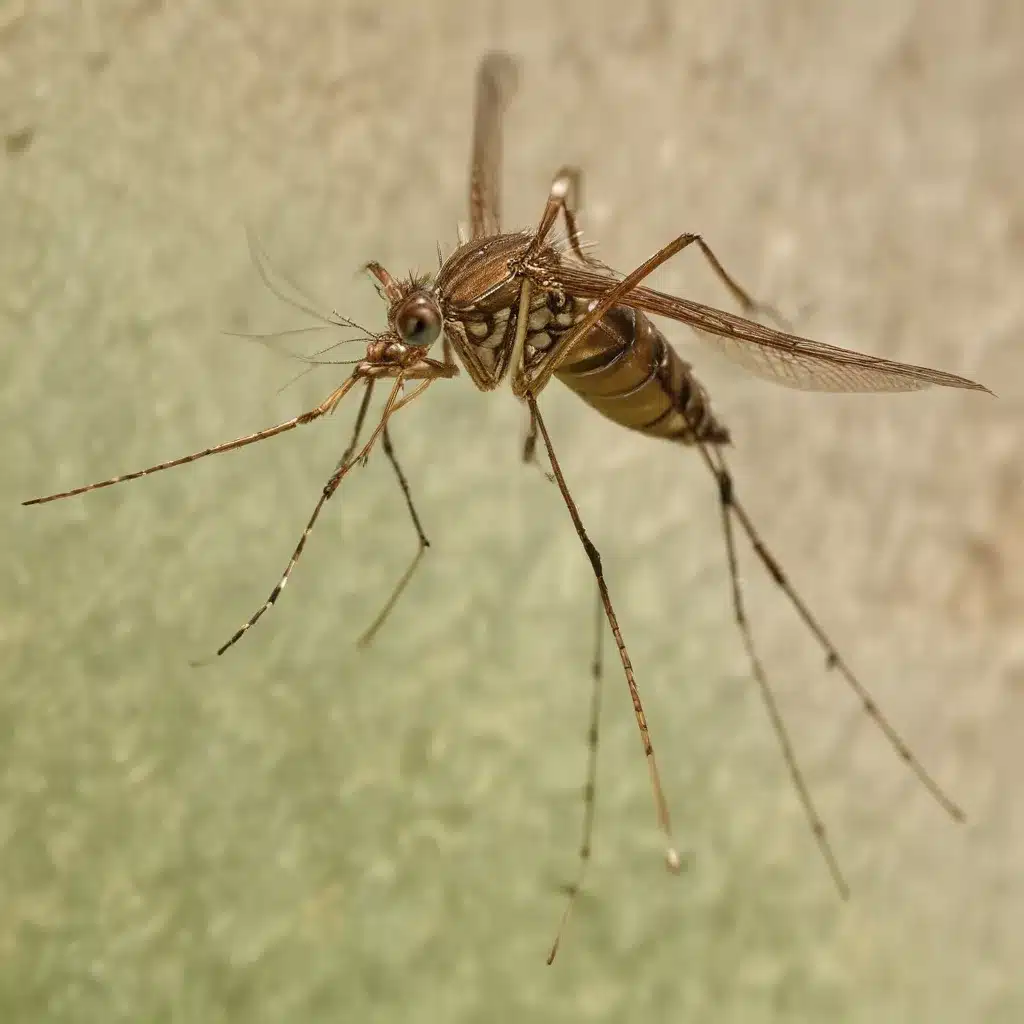
Tarrant County Situation
As an experienced avian caretaker and expert in the avian community, I’ve been closely monitoring the alarming rise in West Nile virus cases in Tarrant County, Texas. The numbers are truly staggering – the region has already reported 28 human cases, with 24 individuals hospitalized, and a tragic fatality. This marks more than double the cases seen in the entire 2023 season.
What’s even more concerning is that we’re only in the early stages of the West Nile virus season, which typically runs from April through mid-November. With the dramatic spike in positive mosquito samples – over 480 across the county – it’s clear that this outbreak is far from over. Local health officials attribute the surge to higher-than-normal summer rainfall, which has provided ideal breeding conditions for the mosquitoes that transmit this dangerous virus.
Virus Transmission
West Nile virus is the leading cause of mosquito-borne disease in the United States. The virus is primarily transmitted when an infected mosquito feeds on a human host after previously biting an infected bird. These avian species act as natural reservoirs, allowing the virus to persist and amplify in the environment.
Mosquitoes of the Culex genus, particularly the Culex pipiens and Culex quinquefasciatus, are the main culprits responsible for spreading West Nile virus to humans. These mosquitoes become infected when they feed on viremic birds, and then pass the virus on to people through their subsequent blood meals.
Public Health Concerns
The West Nile virus poses a serious public health threat, especially for certain high-risk groups. While around 80% of infected individuals will not develop any symptoms, the remaining 20% may experience the milder form of the disease, known as West Nile fever. This typically includes symptoms like fever, headache, body aches, and a skin rash.
Even more concerning are the approximately 1 in 150 cases that progress to the more severe neuroinvasive form of the disease. This can lead to potentially life-threatening complications, such as encephalitis (brain inflammation), meningitis (inflammation of the membranes surrounding the brain and spinal cord), and acute flaccid paralysis. Symptoms may include convulsions, coma, disorientation, muscle weakness, neck stiffness, and tremors. Recovery from severe illness can take several weeks or even months, and in some cases, the neurological effects may be permanent.
The risk of developing severe West Nile virus disease is higher for the elderly, those with compromised immune systems, and individuals with certain underlying health conditions. Preventive measures are crucial, as there is currently no specific treatment or vaccine available for humans.
To keep residents safe, local authorities in Tarrant County are working closely with the public health department to implement a multi-pronged approach. This includes conducting targeted ground spraying to reduce the mosquito population, as well as educating the community on effective prevention strategies.
Avian Populations and West Nile Virus
As an avian expert, I’m particularly concerned about the potential impact of this West Nile virus outbreak on local bird populations. Wild birds are the primary reservoir hosts for the virus, and their infection can lead to significant mortality, especially among certain species.
Studies have shown that some bird species, such as crows, jays, and raptors, are particularly susceptible to the virus and can experience high mortality rates when infected. The death of these birds can have cascading effects on the overall ecosystem, disrupting the delicate balance of avian communities.
It’s crucial that we closely monitor the health of local bird populations during this outbreak. By tracking the incidence of West Nile virus in birds, we can gain valuable insights into the virus’s spread and potential impacts on avian biodiversity. This information can inform targeted interventions and help us better understand the relationship between the virus, mosquitoes, and our feathered friends.
At Mika Birds Farm, we take pride in our commitment to avian welfare and conservation. We encourage our readers to report any unusual bird deaths or sightings to local wildlife authorities, as this data can contribute to the overall understanding and management of the West Nile virus outbreak.
Preventive Measures
As an expert in avian care, I can’t stress enough the importance of taking proactive steps to protect both yourself and your feathered companions from the dangers of West Nile virus. Here are some practical tips to consider:
Mosquito Control: Eliminate standing water around your property, as this is where mosquitoes breed. Regularly check and empty any containers, gutters, or other areas that can accumulate water. Consider using approved larvicides, such as “mosquito dunks,” to prevent mosquito larvae from maturing.
Personal Protection: When spending time outdoors, especially during dawn and dusk hours when mosquitoes are most active, use an effective insect repellent containing DEET, picaridin, or lemon eucalyptus oil. Wear long-sleeved shirts and pants to minimize exposed skin.
Fans and Air Movement: As the Tarrant County health director, Dr. Brian Byrd, has suggested, using fans can be an excellent way to deter mosquitoes. These insects struggle to fly in areas with strong air currents, so strategically placing fans around your outdoor living spaces can help keep them at bay.
Monitoring and Reporting: Stay informed about the West Nile virus situation in your area by regularly checking local health department updates and the Mika Birds Farm blog. If you notice any unusual bird deaths or signs of illness in your feathered friends, be sure to report them to the appropriate authorities.
By taking these proactive steps and staying vigilant, we can work together to protect our communities, our avian populations, and our beloved backyard birds from the threat of West Nile virus. Remember, at Mika Birds Farm, we’re here to provide expert guidance and support to help you keep your feathered family members safe and healthy.
For more information on West Nile virus and other mosquito-borne diseases, please visit the Texas Department of State Health Services website at dshs.texas.gov/mosquito-borne-diseases/west-nile-virus. And to stay up-to-date on the latest avian news and resources, be sure to check out the Mika Birds Farm blog at mikabirdsfarm.com.


